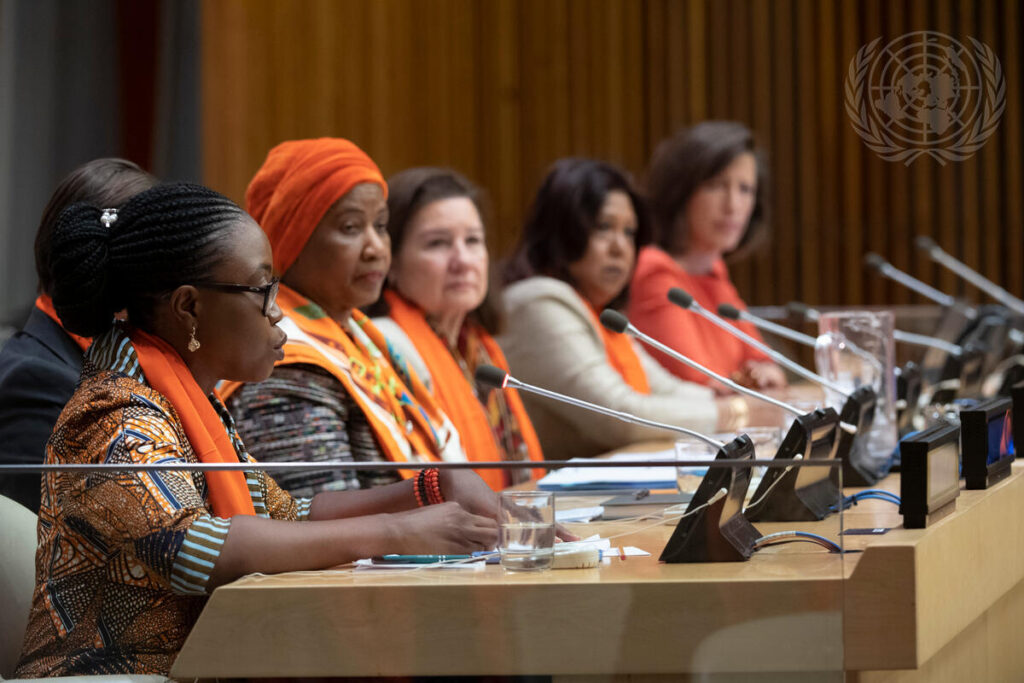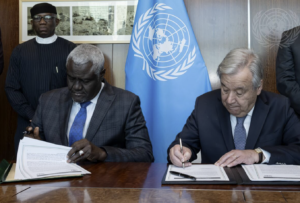Executive Summary
The adoption of the Universal Declaration of Human Rights in 1948 was revolutionary. Out of the ashes of World War II, it codified protections for individuals to live their lives with dignity, respect, and good health, and without fear of want. Recognizing the centrality of human rights to the international order, member states have thus sought to build on the Declaration over the last 70 years via the adoption of treaties and conventions, and resolutions in the General Assembly through the Third Committee and in the Human Rights Council. What has emerged is a broad and diverse range of multilateral norms and mechanisms that are intended to shape and guide member states in their efforts to uphold their commitments and strengthen their implementation. However, despite these agreed commitments, member states are falling short in their willingness to uphold human rights, either through a lack of implementation or abject opposition. With human rights under attack across the globe, there is a risk that ongoing regression will erode trust in democratic institutions and may undermine efforts to advance further protections on human rights.
There is scope to halt this decline and better align multilateral commitments made in New York and Geneva with strengthened domestic implementation. The approach to implementation of multilateral commitments made to address and end violence against women and girls and protect human rights defenders illustrate these opportunities. Gender-based violence against women encompasses a range of behaviors and actions, ranging from physical violence and rape, through to coercive control and financial abuse. COVID has highlighted many of the risks faced by women in the domestic sphere. Furthermore, as civic space around the world contracts, human rights defenders remain under serious threat — oftentimes, both for their advocacy and for their identity. Structural inequalities and the very concept of gender equality and human rights is being challenged or deprioritized, making more effective implementation at the national and subnational level difficult.
Even though the General Assembly’s Third Committee and Human Rights Council regularly considers and meets to negotiate new resolutions on these thematic issues — recognizing new thematic challenges and identifying areas for strengthened state implementation —there is limited impetus for countries to follow through on the commitments they have agreed to, leaving significant gaps in implementation. Through an examination of six case study countries — Canada, Colombia, Liberia, Malaysia, Norway and the United Kingdom — this report finds that there are many similarities in the challenges countries face in terms of strengthening the implementation of multilateral human rights commitments, but also differences that may emerge as a result of a country’s economic status, cultural beliefs, perceived reputation on human rights, and domestic political influences.
Several factors can provide opportunities for or obstacles to the domestic implementation of multilateral human rights commitments. These include whether human rights is positively framed as part of domestic politics; the availability of regional mechanisms to challenge human rights abuses; assignment of funding and resources to support in-country capacities (such as national human rights institutions and civil society); the collection and management of data to inform public policy; levels of diverse civil society engagement; mechanisms to seek justice and accountability for abuses; communications processes on human rights obligations across government departments; and the level of gender-responsive policies. Our research found that member states could seek to address these obstacles and leverage opportunities by focusing on greater information sharing, awareness raising, and communication; increased efficacy of existing tools, mechanisms, and resources; adequate funding; improved training and capacity building; and enhanced data and reporting.
Commitments by member states to uphold human rights set expectations. When member states fail to implement these commitments either through a lack of implementation or support, they erode trust in democratic institutions, and may undermine efforts to advance further protections on human rights. For these reasons, it is important that governments communicate what commitments have been made and why they have been made. Governments need to listen to those whose rights are being ignored or abused and make room for more individuals at the table when considering their approach to human rights resolutions and domestic implementation. That will support efforts to push back against regressive approaches to human rights, and continue to build trust in democratic institutions.
Banner photo: Chinyere Eyoh, Executive Director of Sexual Offences Awareness and Victims Rehabilitation Initiative (SOAR), Nigeria, and UN Trust Fund to End Violence against Women (UNTF) grantee, speaks at the official commemoration of the United Nations International Day for the Elimination of Violence Against Women “Orange the World: Generation Equality Stands Against Rape”. UN Photo/Evan Scheider.




